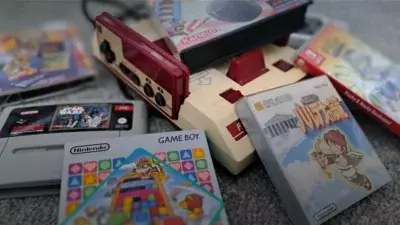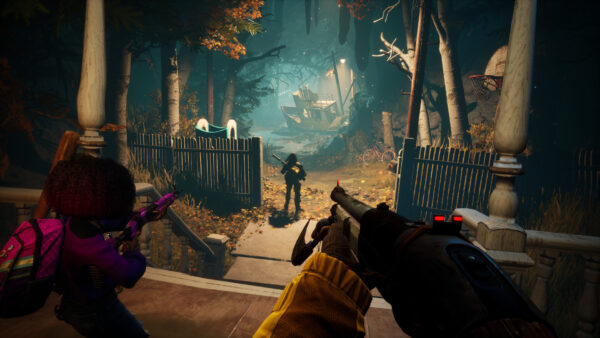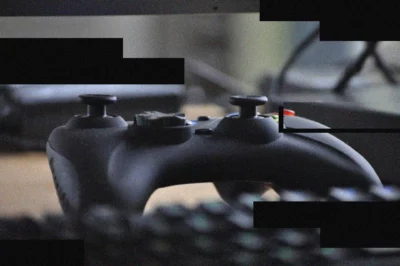
The whole Unity Runtime Fee saga is just a taste of how things are going to go. In short, expect to pay more for less. The enshittification of the games industry has begun.
I’m an optimist at heart. I like to see the best in people, and look forward to a brighter future. But at the same time, I can see how certain aspects of the games industry are, inevitably, going to get a lot worse. And like everything that gets worse, it’s all to do with money.
Let’s talk about the enshittification of the games industry.
The term ‘enshittification’ was coined by the writer Cory Doctorow in an article for Wired a few months ago. It perfectly sums up the trend we’re seeing across the tech sector (and beyond), and ‘enshittification’ has quickly been absorbed into the lexicon of social media posters.
Doctorow’s article was entitled “The ‘Enshittification’ of TikTok”, but it goes into detail about the same patterns and practices being used in many places. In short, he sums it up as: “Surpluses are first directed to users; then, once they’re locked in, surpluses go to suppliers; then once they’re locked in, the surplus is handed to shareholders and the platform becomes a useless pile of shit.”
Once you begin to recognise that pattern, you begin to see it everywhere. A new service is launched, and users love it because it’s cheap or even free, and it does exactly what they want it to do. Suppliers or advertisers are attracted to work with the service because of its growing audience, and the owner of the service gives them preferential treatment. Then, once both the users and suppliers are locked in – so dependent on the service that it becomes practically indispensable – the owner jacks up the prices even as the service is getting worse. Although the trick to enshittification is making sure the worsening doesn’t get quite so bad that the users and suppliers flee in droves, writing off the sunk cost in the service and starting afresh elsewhere.
It’s all to do with debt. Setting up these services requires a huge amount of capital from investors, and the services often end up running at a loss while they’re in the process of acquiring users. That investor money has to be paid back at some point. Enshittification is the equivalent of the bailiffs coming round.
Unity is a prime example. I have no doubt that the game engine was created with high ideals in mind, and it led to a democratisation of the games industry, giving everyone powerful game creation tools for a pittance, or even for free. Some fantastic games have been made with the system, from Cuphead to Hollow Knight to Return of the Obra Dinn, and I’ll wager that hundreds of titles would simply not have been made if Unity didn’t exist: building a modern game engine from scratch is a formidable business, and probably beyond the technical skill of many indie creators starting out in the industry.
But Unity is now long beyond the user-acquisition phase, and the company has built up some quite astonishing losses while it has been encouraging people to use the service. GamesIndustry.biz reported that Unity’s lifetime accumulated deficit stood at $1.3 billion at the end of 2021, but as of this year it stands at around $2.6 billion. Plus there’s the fact that Unity floated on the stock market in 2020, so now the company is beholden to ranks of shareholders. I think it’s fair to say that those shareholders don’t particularly care about the democratisation of the games industry. They just want a return on their investment, as do all of the investors who have injected capital into the business down the years.
Seen in those terms, Unity’s attempt to jack up prices for developers was inevitable. The honeymoon period is long over, the time when the firm was content to make a loss with the aim of building its audience, and investors were happy to let it do so. Now it’s time to make some money.
Admittedly, the way that Unity attempted to raise its prices was ham-fisted to say the least, triggering a wave of confusion and anger in the gaming community of the like not seen since Don Mattrick casually dropped the bombshell that the Xbox One would require you to register all your games. Unity broke the golden rule of enshittification, which is not to make your service so shit that people will abandon it entirely, as many developers have vowed to do. Unity has apologised for the ‘confusion and angst’, and is working on some changes to its unworkable plan. But don’t expect it to be rolled back completely. Unity needs to extract more cash in some way, shape or form, even as developers complain that its features are being eroded.
That’s enshittification in a nutshell: pay more for less.
Developers who are locked into the service will have little choice but to pay up. It’s unlikely that Niantic will remake Pokémon Go in a different engine, for example, and teams who are years into developing a game with Unity would face incredible costs and difficulties with switching to another engine. Those who do decide to switch have limited choices. Engines like Godot or GameMaker might be fine for smaller indie games, but the only publically available game engine with the same level of features as Unity is Unreal.
But let’s play devil’s advocate here. Does Unreal’s five percent royalty fee come close to actually covering the cost of developing and maintaining Unreal Engine? I very much doubt it. More likely is that Unreal is heavily subsidised by Fortnite's ongoing dollar tsunami. But what happens if, god forbid, the kids decide Fortnite is old hat and move on to something else? What then? Quick fact: Unreal Engine made $97 million in revenue in 2019. Fortnite made $3.7 billion.
I suppose what I’m saying is that we’ve been living through a golden age where games and game development tools are cheap or even free, and all that has been driven by huge investment in the hope of expanding the market. But the market is reaching saturation. The latest estimates reckon that upwards of 3 billion people play games worldwide. At the same time, countless thousands of games are being released every single year: Steam alone saw nearly 11,000 new games in 2022.
We’re reaching a tipping point. We’re entering the period of enshittification. And it’s uncharted territory.
Usually what happens when a service gets worse or outdated is that people will switch to a newer, better one, like how MySpace quickly became eclipsed by Twitter and Facebook. But, looking at the example of social media, few alternative options have emerged in the past decade, and those that did were quickly bought by the existing giants. A similar thing is happening in the games industry: it has matured, become entrenched. The most powerful companies have become more powerful. The market is dominated by a handful of giant firms, which are in the process of gobbling one another up. There are fewer choices. We’re being slowly locked in.
At the moment, we’re still being offered deals that seem too good to be true. Subscription services offering hundreds of titles for a tiny monthly fee! Free games every month! Free development tools! You know the kind of thing. But, realistically, how long can that last? What happens when companies start turning off the tap and begin squeezing users for pennies, knowing that they’re locked into the system, unable or reluctant to switch to an alternative?
Public outcry can help, as seen in Unity’s case, forcing the company to rethink its plans. But usually, enshittification comes slowly, with a gradual price increase, the insertion of adverts, the dropping of support for certain features, and so on. It’s difficult to justify a switch when the alternatives are limited in number or nearly as bad, and the worsening of the system remains just about bearable.
The only true way to escape enshittification is through revolution, something that resets the process back into its earliest phase, bringing with it a fresh wave of new companies. In video games, that has usually meant a new medium of some kind, like smartphone games. But what form will the next revolution take?
Will there even be one?





